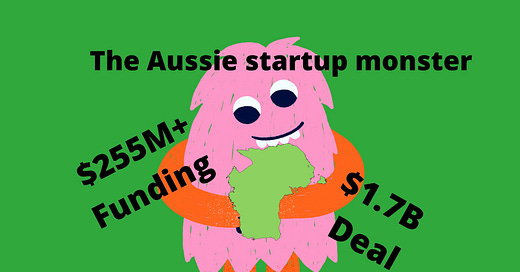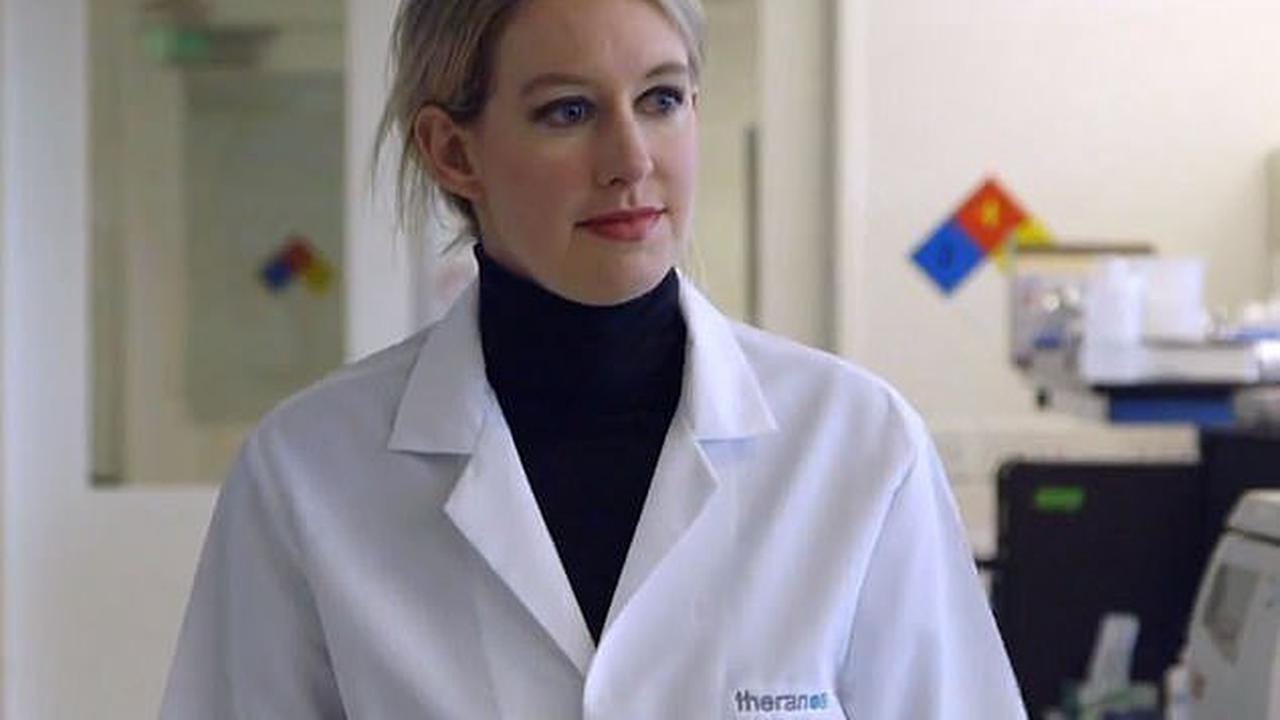Weekly Wrap #52: Monster... Mashups, Raises, Products & Outages
Welcome to our Weekly Wrap, where we cut through the noise to bring you our favourite insights from the technology and startup world.
Please keep the great feedback coming. If you love the Weekly Wrap, share away.
Seen any interesting startups? Have any tips for the Weekly Wrap? Want to indulge our inner-journalists? Drop us a note.
Monster mashups
This newsletter is brought to you by investment bankers and VCs. It isn’t. But it may as well be with the amount of M&A and capital raising news this week. Next level.
Another Aussie whale. Melbourne-based MessageMedia is being acquired by Sinch, a Swedish company that provides a suite of services for companies to build communications and specifically “customer engagement” into their services. The price tag? $1.7bn!
MessageMedia was founded in 2000 by Grant Rule, Justin Lau and Regina Hill. It now provides SMS marketing to over 60,000 customers and handles more than 5 billion mobile messages per year. In the twelve months ending June 30, 2021, MessageMedia is expected to record revenues of US$151m, gross profit of US$94m, and Adjusted EBITDA of US$51m. That’s an “EV/GP multiple of 13.8x and an EV/EBITDA multiple of 25.4x, before synergies.” Mustn’t forget those synergies.
A great exit. Two billion dollar deals in two weeks. Who’s next???
The minnows. IXUP is buying Data Republic for $3m - a 94% discount to the almost $50 million Data Republic spent building the platform. MrYum acquired/acquihired Brisbane QR code ordering startup, Uorda. Mad Paws acquired dog treats and toys subscription business Waggly Club for $3m.
NDN: Non-Deal News from everywhere
Any press is good press. Fastly simultaneously took down the internet and increased its share price. Touché. Fastly operates a content delivery network (CDN) - it has servers around the world to help customers move and store content closer to their end users, meaning they get faster response times. Ironically, Fastly’s tech is designed to prevent common causes of online outages, such as DDoS attacks.
Reddit, Spotify, Twitch, gov.uk, Hulu, HBO Max, Quora, PayPal, Vimeo, Shopify, Stripe, CNN, The Guardian, The New York Times, BBC and Financial Times were just a few of the sites affected by Fastly’s outage on Tuesday. The downtime was caused by a bug in its software that was triggered when one of its customers changed their settings. The company fastly identified and disabled the problem. In just 49 minutes most services were running again.
Its share price jumped up 8% to a one-month high of US$56.20 immediately following the outage. Perhaps people realised just how much of the internet is dependent on Fastly.
Bitcoin is legal. El Salvador has become the first country in the world to adopt bitcoin as legal tender. Politicians from Paraguay, Panama, Brazil and Mexico are considering doing the same. El Salvador President Nayib Bukele says it will promote “financial inclusion”, investment and economic development. Why?
El Salvador’s economy is heavily dependent upon “remittances (ie funds sent home by citizens working abroad) - they totalled over 20% of GDP in 2019. Money transfers are expensive and sometimes difficult to access.
70% of citizens are unbanked.
El Salvador’s national currency is the U.S. dollar. El Salvador is feeling the inflationary effects of the U.S. Fed dramatically expanding the supply of circulating U.S. dollars (which it did to curb the economic impact of the pandemic).
But bitcoin isn’t a complete solution either. Internet penetration in El Salvador is low (one report says it stood at 59% in January 2020). And bitcoin is highly volatile and at the mercy of Elon Musk’s tweets. Since reaching a high of nearly US$65,000 in April, it has dropped around 50%.
Meanwhile, the biggest bitcoin event in history ‘Bitcoin 2021’ was held in Miami last weekend, and might have been a Covid super spreader event.
Feature, not a product? Watch out feature-products, the product mega monsters are coming for you:
Loom: Asana is partnering with Vimeo to bring asynchronous video messaging to its platform. It also (finally) launched a desktop app. Will Loom’s gimmicks like new Donut frames be enough to keep it in demand?
Calendly: Google is privately testing new features for Workspace - its productivity toolset likely to be released this year. One feature will let users share their meeting availability with anyone. It will also let people RSVP in detail - in person, by video, no camera.
Zoom: Google Meet has come in leaps and bounds in recent months. With Google and Microsoft doubling down on getting people (virtually) together, will Zoom be gobbled up by… Salesforce? Cisco?
Clubhouse: Twitter nailed the execution of Spaces. It was even the President of El Salvador’s social media forum of choice this week.

Lockdown got you online shopping again? You’re not alone. Lockdown 4.0 has been terrible for Victoria, but great for ecommerce. Art marketplace Bluethumb experienced its first $1 million week. Founder George Hartley reports that, compared to a month prior to lockdown, BlueThumb’s sales are up 216% and conversion rate is up 114%.
Test your own product. Jeff Bezos will be a passenger on Blue Origin’s (his spaceflight company) first-ever human space launch on 20 July.

Tis the season to be capital raising
Antler invested in 13 new startups. Another of Antler’s 2020 cohort, Mys Tyler raised $1m for its body positivity app that helps women find fashion inspiration to suit their dimensions and style.
AMGC (Advanced Manufacturing Growth Centre) awarded six manufacturers with commercialisation grants totalling $3.7m. Further funds are still available - apply here.
The Village Co raised $1.2m. The startup creates AR activity packs for restaurants, cafes, bars that promise “to keep kids entertained at the table and put the joy back into family dining… and have kids hooked on your venue.” Because more screen time at dinner is exactly what families need.
Tribu raised $1.25m. Its software helps IT helpdesks and managed service providers automate assistance requests.
Cubiko raised $1.7m for its medical clinic practice intelligence platform.
Castlepoint raised $3m from Main Sequence for its compliance, security and discovery management software.
Endua secured $5m in “funding, technology and industry expertise” from CSIRO, Main Sequence, and Ampol (20% sweat equity - let’s hope they prove their worth). Endua is developing hydrogen-powered energy packs using CSIRO-developed electrolysis technology.
Ento raised $5m for its workforce management software. It last raised $1.2m from AirTree in 2015.
Tanggram raised $5m. Tanggram’s users earn credit points when shopping online that convert to cash, and are then invested in term deposits. It has $10 million in funds under management.
Rich Data Corporation raised $15m for its credit risk tool that provides deeper insight into borrower behaviour.
Sonder raised $16m. The company provides 24/7 help (eg mental health, medical, scam, accident, safety) for staff and students.
UpGuard raised $25m from existing investors, including Square Peg. UpGuard helps businesses prevent data breaches by monitoring and assessing third-party vendors. A while between drinks - UpGuard last raised US$17 million Series B in 2016, moving away from the VC train to become profitable.
Grow Inc raised $25m from the ASX and AirTree. Blockchain-friendly Grow will “work corroboratively under a strategic development agreement to deliver key infrastructure for super funds to access a member sub-register”.
Memories raised $33m for its new social media platform. Memories lets users capture and document key milestones in their lives, including ‘future messages’ where users record a message that will be delivered to a loved one on a set date in the future. The company pivoted from being a memorials-only site because “why limit ourselves only to the death market?… There’s far more people who are alive.” Sound logic.
Synchron raised $52m to launch US clinical trials of implantable brain device to help severely paralysed patients.
Lumos Diagnostics raised $63m and is set to list on the ASX in July. Lumos Diagnostics’ products include FebriDx which is a finger-prick blood test that can indicate if a person has a general bacterial or viral acute respiratory infection within 10 minutes.
Speaking of finger-prick blood tests, Theranos merch is taking off ahead of founder Elizabeth Holmes’ criminal trial in August. An official lab coat will set you back US$17k.
Simulate (maker of Nuggs) secured $65m led “by Serena Williams’ husband Alexis Ohanian”. The alternative meat startup was founded by a 21-year-old Australian.
Mrs Williams’ husband also closed US$150m for his SevenSevenSix fund this week. #couplegoals


Bubble Tea Club “broke the record for the highest number of expressions of interest” ahead of its crowdfunding campaign.
What the kids are up to
WOMBO AI makes any photo… sing. Just three months after launching, this week it hit 50 million downloads, with 670+ million WOMBOS created.
Not tech-related, but…
That’s a wrap! We hope you enjoyed it.
Bex, Gavin and the team at Ignition Lane
If you aren’t subscribed to the wrap, sign up now:
Watch Gav on AusBiz at 2pm on Tuesday, when he opens the Startup Daily TV show










